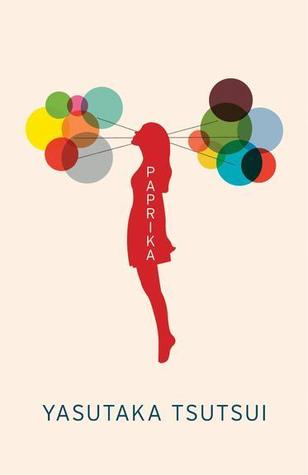 The novel that inspired the anime, Paprika is the tale of a Chiba Atsuko, a young female psychotherapist/dream detective, who dons a disguise and becomes Paprika, delving into the dreams of prominent figures to treat ailments they cannot allow to be made public. Her partner at the Institute for Psychiatric Research, the brilliant Dr. Tokita Kosaku, has created the DC Mini, a device not yet legalized that allows Paprika to access the minds of her clients and help them in the way that she does.
The novel that inspired the anime, Paprika is the tale of a Chiba Atsuko, a young female psychotherapist/dream detective, who dons a disguise and becomes Paprika, delving into the dreams of prominent figures to treat ailments they cannot allow to be made public. Her partner at the Institute for Psychiatric Research, the brilliant Dr. Tokita Kosaku, has created the DC Mini, a device not yet legalized that allows Paprika to access the minds of her clients and help them in the way that she does.
But everything is in jeopardy when a rival of Atsuko’s gets their hands on the DC Minis and uses them for their own sick and twisted fantasies. Colleagues turn up dead or in near vegetative states and the dreams of those affected begin crossing over into the real world. The fate of the world now rests in Atsuko’s hands.
This was an instant buy for me when I randomly saw the Vintage edition on a new release table at Barnes and Noble. (Yes, some of us do still prefer hard copies of books to eReader versions.) I haven’t yet seen the Satoshi Kon anime adaptation of Paprika but I knew that it was a mindtrip and a half, even more bizarre than Perfect Blue if that is possible.
Remember that movie Inception? Well, I am pretty sure that somewhere along the way the writer either watched or read Paprika. You’ve got high end technological devices that allow a person to enter into another’s dream. Check. Accessing a dream within a dream? Check. Paprika did them first, and while I love Inception, I think Paprika may have just done them that teeny little bit better. And now I am upset that the anime isn’t on Netflix at the moment because I really want to watch it, and then Perfect Blue, and Paprika again.
Important issues arise in this book, especially around privacy laws and rights when using devices such as the DC Minis or any type of machinery that gives another access to our brains/memories/etc. Just how much and how far can another person explore and dissect our thoughts? What would be the legal ramifications if a doctor went too far? How would the patient even know?
And is sex in a dream-state still sex when both people are fully aware but not physically touching because they are in a dream?
Thankfully, Paprika wasn’t so heavy on the science a la Parasite Eve which meant I devoured this book in no time. There is plenty of intrigue, some cloak and dagger, and clandestine meetings in musky bars to keep you on the hook without getting bogged down in the science. I definitely recommend this book if you are into Japanese sci-fi.

